Assembly
Let’s build high-quality, individualized learning experiences for all young people.

America’s one-size-fits-all approach to education puts the burden on schools to provide an ever-growing range of services to young people, including many they were never designed for. Those with resources routinely supplement their children’s traditional school experience with extra support and out-of-school activities, or even leave the traditional classroom behind for alternative approaches like hybrid schooling or learning pods.
While all students can benefit from “assembling” these personalized learning experiences, unequal access to them is often overlooked within the education sector.
Assembly aims to build systems of education in which all families have the information, support, and guidance to access educational opportunities that help their children thrive.
Publications and News
Assembly Grant Program
Assembly Across Sectors
An Assembly of Talent: Empowering and Expanding Human Capital in Education
Some Assembly Required
A History of Public Education and the Assembly of Services
Webinar: How to Help Families Navigate Learning Options
Assembling Education: Infrastructure Needs
Five Roles for Public Policy in Assembly
Not an Assembly Line
What’s Assembly?
Assembly puts families and students at the center of flexible services, supports, and learning options, allowing them to customize their experiences and build community. It also requires policies and practices to ensure access isn’t constrained by socioeconomic status or other structural barriers.
Needs
Each young person has fundamental needs as well as unique interests, talents, and goals. They require a variety of supports to grow into adults ready to contribute to their community, the economy, and the body politic.
- English as a second language
- English language arts
- Foreign language
- Individual passions
- Math
- Mental health, therapy, and related supports
- Nutrition
- Physical health and wellness screenings
- Science
- Sense of community
- Social services
- Social studies
- Special education
- Work experience
Resources
A flexible learning ecosystem includes the diversity of options available within and outside of school. To access these options, students and their families need funding, information, and agency.
Families need adequate, portable funding to ensure their children’s needs are met.
Families need information to find learning options, assess how they align to students’ needs, and navigate the system.
Families need a sense of what’s possible, what engagement in their children’s education can look like, and guidance and support to take advantage of available opportunities.
Providers
Students could learn and receive support from many potential providers, each of which can contribute components of what students need for lifelong success.
- Families
- District schools
- Charter schools
- Private schools
- Nonprofit organizations
- Public agencies
- Businesses
Enabling Conditions
For a flexible learning ecosystem to function, an array of enabling conditions must develop.
Infrastructure
- Broadband internet and devices
- Buildings and locations to gather
- Learning materials
- Navigation support
- Platforms and marketplaces
- Student records
- Transportation
Policy
- Accountability and transparency
- Option-enabling policies
- Funding mechanisms
- Governance arrangements
- Student data and privacy
- Other supportive policies
Human Capital
- Advocates
- Community members
- Educators
- Entrepreneurs
- Pipelines
- Policymakers
What does Assembly mean for students?
In an Assembly model, K-12 students can access more learning in more ways —including academic courses, tutoring, internships, dual enrollment opportunities, athletics, art, music, and even alternative school formats like homeschooling or microschools. Students can discover and explore their passions, cultivate their talents, discover their academic passions and career goals, and design a fuller, better education.
What are the challenges?
To make Assembly a reality, the field must adapt existing policy environments, infrastructure, and human capital systems to support more flexible learning options — and ensure all families have access to them.
That will require overcoming many barriers, including outdated physical infrastructure and financial and data processes that hold the current school system in place; challenges learning providers confront when trying to launch or expand; inflexible roles for teachers and other adults; and a policy environment making it too hard for many families to exercise their agency.
What’s next?
Over the last year, we’ve worked with a diverse Advisory Group to share knowledge, pressure-test our thinking on how and where Assembly exists today, and analyze the challenges to expanding it. In the months ahead, we’ll begin exploring ways to help families and students better understand and navigate the growing landscape of supplemental and alternative education options — so that they can make informed choices that lead to higher-quality educational experiences.
Advisory Group
Lori Armistead
Walton Family Foundation
Derrell Bradford
50CAN
Maya Martin Cadogan
Parents Amplifying Voices in Education (PAVE)
Joseph Connor
Odyssey
Mike Flanagan
Mastery Transcript Consortium
Selamawit Gebre
RESCHOOL
Michael Horn
Author, From Reopen to Reinvent
Ashley Jochim
Center on Reinventing Public Education
Natasha Kamrani
Organizer Zero
Christian Lehr
Tyton Partners
Michael McShane
EdChoice
Adam Peshek
Stand Together Trust
Aaliyah Samuel
Collaborative for Academic, Social, and Emotional Learning (CASEL)
Don Soifer
Nevada Action for School Options
Curtis Valentine
Progressive Policy Institute
Kelly Young
Education Reimagined
Note: Bellwether intentionally recruits an Advisory Group with diverse viewpoints. Participation in the Assembly Advisory Group does not constitute an endorsement of any of the ideas or perspectives shared here.